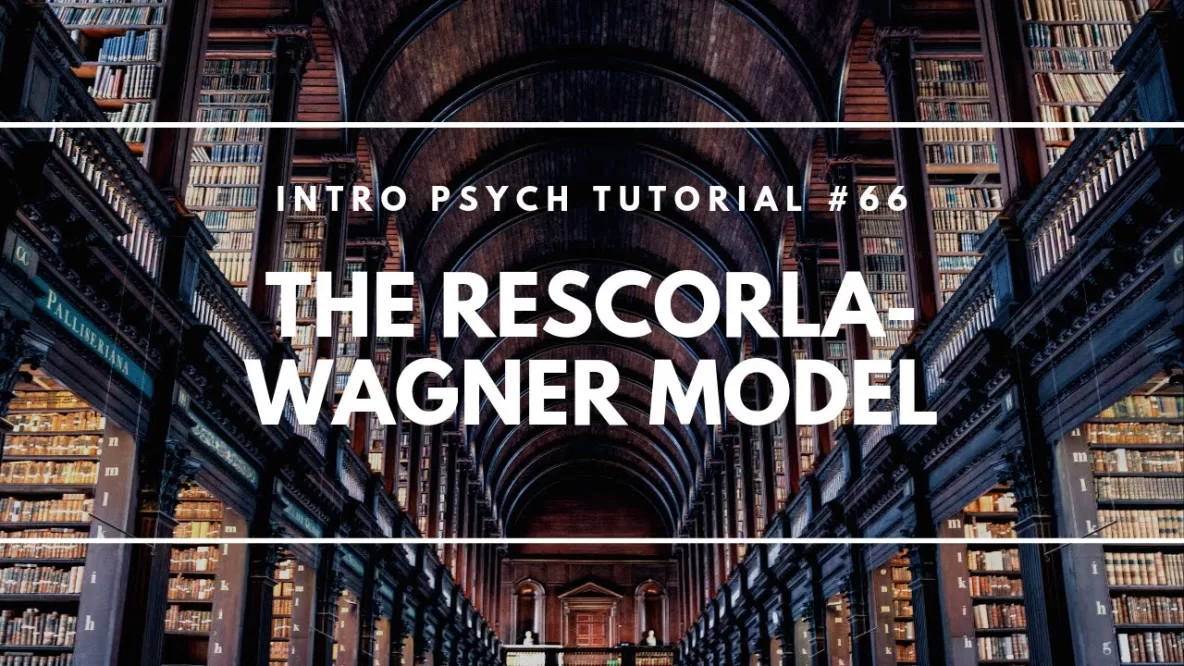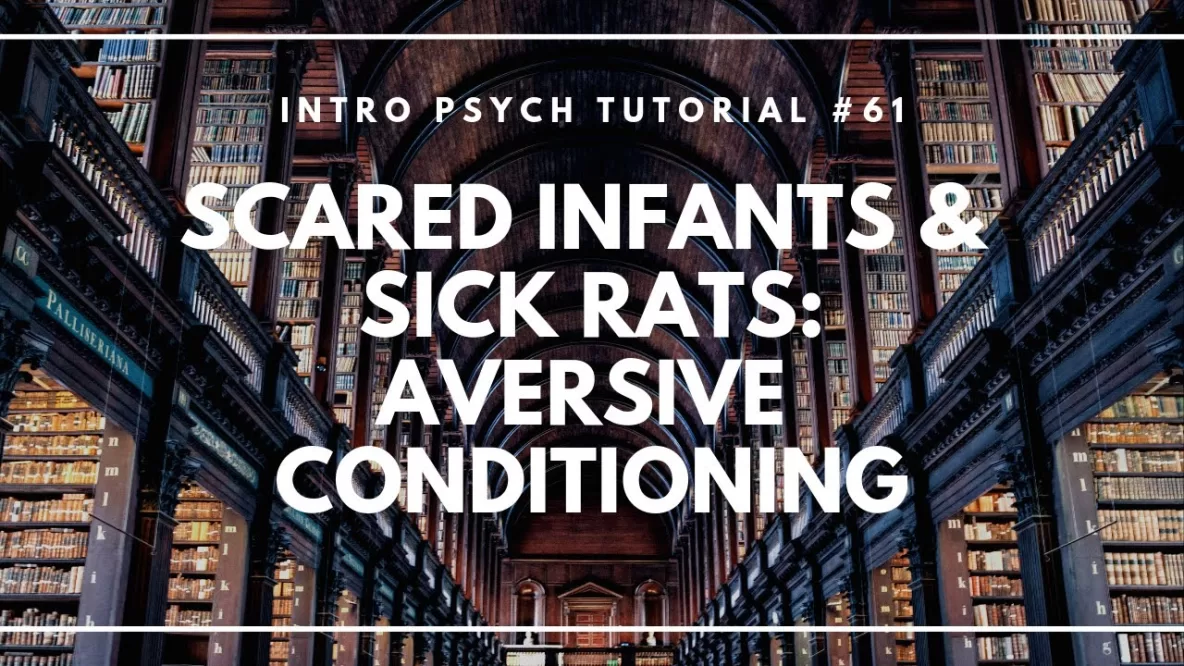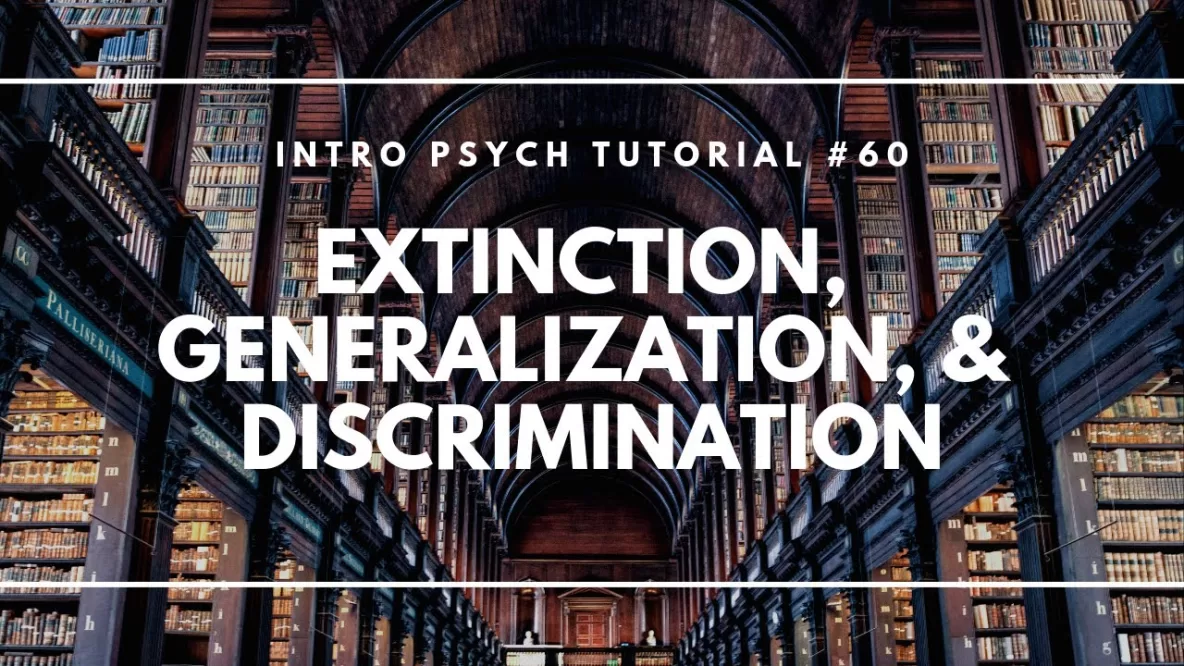Here’s a knowledge organizer I’ve created of the most essential terms for learning theory and behaviorism in an introductory psychology course. These knowledge organizers are designed to help you identify the most important factual knowledge you need to have in order to engage in the more challenging activities of discussing, … Read More
The Rescorla-Wagner Model
In this video I explain the basic idea behind the Rescorla-Wagner model or contingency model of classical conditioning proposed by Robert Rescorla and Allan Wagner. This model suggests that the reason Pavlov’s dogs associated the bell (rather than some other stimulus) with food was that it was salient and served … Read More
Scared Infants and Sick Rats: Aversive Conditioning
In this video I explain two examples of aversive conditioning; John Watson’s “Little Albert” study pairing presentation of a rat with a loud noise, and John Garcia and Robert Koelling’s work on learned taste aversions in rats. Taste aversions demonstrate our biological preparedness for some learning, which allows us to … Read More
Extinction, Generalization, and Discrimination
In this video I explain some other terminology for describing aspects of classical conditioning including acquisition, extinction, spontaneous recovery, stimulus generalization, stimulus discrimination, and second-order or higher-order conditioning. Don’t forget to subscribe to the channel to see future videos! Have questions or topics you’d like to see covered in a … Read More
Types of Test Designs
In designing an intelligence assessment, I may want to know the level of difficulty that someone is capable of solving. In this case, I would probably look at whether a person is able to solve a particularly difficult puzzle or not. This would be considered a power test. In this … Read More



